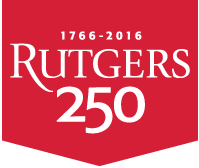

People
Research
Other pages
Nuclear Physics Research Activities Overview
Traditional nuclear physics describes nuclear properties in terms of protons and neutrons. Most nuclei are well described as nucleons interacting either through empirical interactions in the shell model, or through a force derived from nucleon-nucleon scattering.
Modern nuclear physics has much greater ambitions. New insights are gained into conventional descriptions by studying nuclei with much larger neutron, or proton excesses, and by investigating nuclei with high spin. Reactions with intermediate-energy mesons and electromagnetic probes provide insight into the quark substructure of the individual composite particles, the high momentum structure of nuclei, and the transition between current-quark, constituent-quark, and meson-baryon degrees of freedom. Relativistic-heavy-ion experiments will soon attempt to recreate the quark-gluon plasma, not present since the first seconds after the creation of the universe many billions of years ago.
The Rutgers University nuclear physics experimentalists and theorists have a broad range of interests, that cover most of the topics above, intersecting the interests of high energy physicists and astrophysicists. You can learn more about the experimental and theoretical research activities.
More information about the modern scope of nuclear physics can be found in the most recent NSAC 2007 Long Range Plan, available here. As part of this planning process, we hosted the 2007 Town Meetings on Quantum Chromodynamics.
A list of seminars for this term is here.
The fall 2004 graduate student recruiting brochure is available in pdf, Open Office formats.
Please send any comments on this page to Ronald Gilman, rgilman@physics.rutgers.edu.
Find more about:
Jump to:
| Undergraduate Courses |
| Graduate Courses |
| Events Newsletter |
| Outreach Activities |
| Observatory Nights |
| Alumni & Friends |
| Alumni Newsletter |
